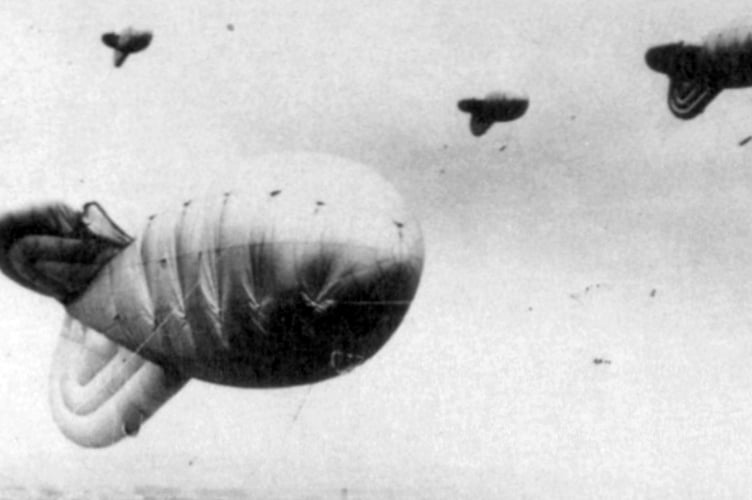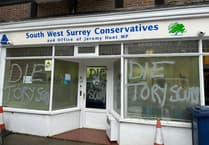THE Luftwaffe’s daylight raid on the Vickers-Armstrong aircraft factory at Brooklands on 4 September 1940 caused almost 90 deaths and hundreds of injuries.
Considerable damage was done to the factory, and the production of Wellington bombers was seriously affected.
Two days after the attack, barrage balloons were delivered to help defend the site.
Alan Fairlie was a baby at the time of the raid, asleep in his pram after being fed lunch. German bombers flew over his family’s house and dropped their terrible cargo on the factory just across the railway line.
At the time, Alan’s father was on the roof of the GQ Parachute factory in Portugal Road, Woking, carrying out firewatch duty. He could see the raid and correctly guessed the bombers’ target as Vickers.
Alan said: “My father was told to go straight home to check on the welfare of my mother, my sister Nita and I.
“An immediate outcome of this raid was the installation of barrage-balloon sites around the Brooklands aerodrome.

“One of these was in the field backing onto the River Wey Navigation at the rear of our garden. Another was in a field across the road from our house.
“Both of these sites were to be staffed by the same RAF crew. However, the main priority was to build the sites – ie lay down the concrete bases to which the balloons would be tethered – and the consequence was the RAF men did not have anywhere to sleep or eat.
“Locals were asked to billet these men until living quarters for them could be built.
“My parents agreed to help out, so Dick Hudson, Bill Burt and Jock Yates enjoyed our hospitality.
“Even when the airmen’s quarters were built, the relationship with Dick, Bill and Jock continued as they came back to our home to have baths. And our chickens produced enough eggs for their breakfasts to be made all the more enjoyable.
“After the war, the three men kept in touch. I well remember Dick’s son Henry coming to stay with us for a week after Christmas for a few years, so he could visit London each day and see a show in the West End.
“This annual event meant Nita and I had to swap bedrooms. This was so Henry could share the double bedroom with me – and Nita had to slum it in my single.
“During these visits, Henry taught me sign language which, sadly, I can no longer remember.
“In much later years, my mother and father were invited to Skegness to stay with Dick and his wife.
“Bill worked for Clarks shoes, and Jock emigrated to Tasmania after the war but kept in touch with my parents.
“Jock always called on us when he came to visit the old country.
“The memories I have of the balloon site across the road from our house are of visiting there in my pedal car when the airmen were still there.
“A few years later, when the site was overgrown, I flew my kite there.
“Once all the line of the kite was extended, I attached it to the large metal ring at the centre of the concrete base that had once held the balloon. I then stood back and admired what had been my Christmas present, flying above me.
“On one occasion, the kite broke free and floated across the railway line. It came to rest in the Brooklands sewage farm, from where my father retrieved it.
“Eventually, the land was returned to being used for agriculture by the owner, Mr Bentley. The land at the back of our house was returned by owner George Elliot to the growing of crops and rearing of pigs.”
IF you have memories or old pictures relating to the Woking area and its people which you would like to contribute to this page, call David Rose on 01483 838960, or write to the News & Mail.




